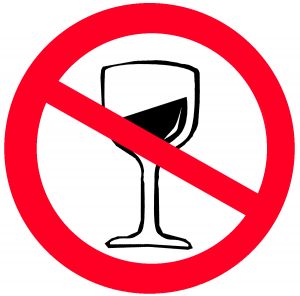Important Aspects of Alcohol Detox
Conquering an addiction usually takes time and diligence, and completing alcohol detox may have a profound impact on your body and your emotions. An alcohol addiction may affect every aspect of your life, and you may experience many different feelings as you work at your recovery. Understanding the depth of alcohol addiction and the dangers of trying to complete detox on your own may help you avoid many pitfalls, and your recovery may progress as safely as possible with supervised intervention and comprehensive treatment.
alcohol addiction may affect every aspect of your life, and you may experience many different feelings as you work at your recovery. Understanding the depth of alcohol addiction and the dangers of trying to complete detox on your own may help you avoid many pitfalls, and your recovery may progress as safely as possible with supervised intervention and comprehensive treatment.
Make The Call That Can Save Your Life 877-611-4318
The Physical Aspects of Alcohol Detox and Alcohol Addiction
You may think that you can stop drinking whenever you want to, but this popular assumption rarely leads to a successful outcome. Constant drinking may have damaged you liver and other bodily organs, and any preexisting conditions may have been exacerbated as a result of your alcohol addiction as well. Correcting the damage to your cardiovascular, gastrointestinal, or other bodily systems may involve a lot more than you can handle on your own, and you may put your life as well as your potential sobriety in jeopardy if you try to quit drinking without assistance. You may be able to withstand mild headaches or slight bouts of nausea, but symptoms such as tremors, hallucinations, and dehydration may lead to permanent physical damage or even death.
Make The Call That Can Save Your Life 877-611-4318
The Emotional Toll of Alcohol Detox
Drinking may have affected your personal and professional life, and your addictive behaviors may have alienated you from friends, family, peers, and other important people in your life. The anger, fear, shame, or other feelings that you experience may be too much for you to work through without sponsorship or professional help. The negative consequences of your drinking may seem insurmountable, and your strained relationships may stay tenuous if you fail to sincerely acknowledge the feelings and experiences of others who may have been affected by your drinking. Unchecked emotions may lead to poor responses, poor choices, and a greater likelihood of yielding to alcohol consumption again.
The Connection between Alcohol Detox and Lasting Sobriety
Alcohol detox may be a brief or lengthy experience, and there may be no way to tell how your alcohol withdrawal will progress without a proper evaluation of your physical and emotional state. A potentially serious symptom like dehydration may require quick and professional medical intervention, and there may be no way for you to remedy this type of situation on your own. Hallucinations may be especially jarring, and you may sustain physical injuries if you attempt alcohol detox in the absence of medical supervision and a plan for handling these troubling sensory experiences. Detoxification needs to be complete and safe in order to be successful and simply abstaining for a week or two may not be a true indication that your body has been safely cleared of alcohol. Staying sober involves recognizing bad habits that need to come to an end and healthy choices that need to be incorporated, and a good alcohol detox experience can be the foundation you need to begin a lasting sober phase of your life.
Significance Of Alcohol Treatment Centers
What Are Alcohol Treatment Centers?
Alcohol treatment centers work in the same manner as drug treatment centers in the sense that the
primary objective of such institutions or centers is to uproot any kind of harmful addiction in their patients, be it the addiction to alcohol or to drugs. Alcohol abuse is just as difficult to treat or get over as substance abuse therefore this kind of endeavor calls for professional intervening. In today’s world, with the number of alcohol addicts increasing with each passing day, the importance or significance of alcohol treatment institutions is definitely on the rise.
Make The Call That Can Save Your Life 877-611-4318
Are alcohol treatment centers worthy of the fees they charge?
If you thought that you could get rid of the alcohol addiction by just going cold turkey on it then you are going to be utterly disappointed. Going cold turkey, i.e. to suddenly cease the consumption of alcohol, is definitely a bad idea for the body and health of the addict because of the adverse reactions that the body generates due to the absence of alcohol intake as it is used to or accustomed to receiving the daily dose of alcohol.
What alcohol treatment centers do is that they approach the task of eliminating alcohol treatment in a scientific and organized manner. Moreover, unlike being in the comforts of home, all this is carried out in a disciplined environment like a hospital, an institute or a treatment center, which means that the addict would be forced to observe the rules. Thus, these centers, especially reputable ones are definitely worthy of the fees they charge.
Make The Call That Can Save Your Life 877-611-4318
Why are alcohol treatment centers so important in the society?
Addiction to alcohol is a terrible thing, not only does it cause deterioration of one’s health but also one’s finances and one’s relationship with near and dear ones like family, friends, co-workers, relatives, etc. It is important for the addict to note that the task of breaking his/her alcohol addiction may be difficult, but it is definitely rewarding and worthwhile.
Alcoholism have a lot of negative side effects, and since the chances of breaking the addiction are higher in case of rehab centers or treatment centers therefore these centers are very important and significant in the modern society. The addict or alcoholic will not only have better health after the treatment but his/her bank balance will also be in good ‘health’ because he/she will no longer be requiring to spend money purchasing alcohol to take care of his addiction or alcoholism.
What to expect from alcohol treatment centers
The modern alcohol treatment center offers its patients with a sea of facilities in order to ensure that they are comfortable during the entire length of the treatment process. The first and foremost feature that they offer is a congenial and conducive environment so that you can get closer to yourself and realize the dangers of your addiction. After invoking self-realization in the patients, proper encouragement and support are given by staffs to the addicts to assure them that they can break free from their deadly addictions. The patients are then put on therapies and medications to treat their alcohol addictions. Thus, this is the general package that all alcohol treatment centers offer and this is what you can expect when you enroll yourself in one such center of your choice.
Make The Call That Can Save Your Life 877-611-4318
Do You Have A Gambling Addiction?
Do You Have a Gambling Addiction
For many, gambling is a pastime or hobby, with the added bonus of offering the chance to win money, although for some, it can easily become a gambling addiction, and lead to various other problems. Around 2.5 million Americans have a gambling problem, although it is often understandably difficult to get more exact figures. Men comprise about 75 percent of those who have a problem with gambling, and in many cases the addiction develops early in life. Those with a personality disorder, alcohol or drug problem are more likely to have a gambling problem, as are those affected by a stresser, such as divorce or unemployment. The Internet has made it much easier for just about anyone to gamble; you don’t necessarily need to live in Las Vegas or Atlantic City to have a serious problem.
What Is A Gambling Addiction?
Gambling, by its very nature can be exciting and involves an element of risk; many gamblers experience an adrenaline rush that few other activities can provide. Partly because of this, it can be difficult to realize when you – or someone else – has a problem. An addicted, or compulsive gambler tends to gamble regardless of the mood that they are in, and they generally want to gamble regardless of the consequences. In short, if you are gambling to the point where it affects your life, you probably have a problem, which in medical language is known as an impulse control disorder.
Signs Of Gambling Addiction
Because many people are so reluctant to admit that they have a problem, it is often family or friends who notice it and insist on the person getting help. Some common signs include spending too much time gambling and not acknowledging that, becoming irritable when talking about the subject, and jeopardizing personal relationships or a job. If you sell items or borrow money in order to gamble, it’s a sure sign of having a problem, and many compulsive gamblers literally spend every penny they have on their gambling addiction and end up with hundreds of dollars of debt. If you gamble because you are depressed, sad or lonely it can also be a sign of addiction, and repeatedly trying to stop gambling and failing to do so, is also a red flag.
Help For Gambling Addiction
The first step in treating any gambling addiction is to accurately diagnose the problem, and determine whether there are other medical or psychological issues involved. Although many addicted gamblers know they have a problem and are able to stop, admitting the problem is sometimes the hardest part of the treatment process for many. For some, avoiding tempting situations, and making sure they do not have the money or opportunity to gamble, can be sufficient to break the habit. Other problem gamblers may need some type of therapy or treatment, which is typically tailored towards that individual. Treatment may include medication for any underlying condition, counseling, education on the dangers of the addiction, and the help of a support group. If you or someone you know does have a gambling addiction, there is help available.
Reach a Counselor Toll-Free Now at 877-611-4318
Understanding the Basics of Methamphetamine Treatment: What Works and Why
Do I Need Methamphetamine Treatment?
Methamphetamine treatment can be very difficult for doctors to treat and for patients to undergo because of the highly addictive nature of the drug. As a stimulant, it targets the central nervous system, causing a prolonged sense of pleasure and euphoria. It also increases one’s focus, energy, self-confidence and sexual ability. The problem with methamphetamine is that like every addictive substance, it has to be taken in increasing amounts in order for the user to achieve the same level and quality of “high” they had. Over time, meth users begin to suffer the effects of their addiction which can range from severe physical changes to mental deterioration. Learn more about what to expect regarding methamphetamine detox, it’s associated side effects and results.
Methamphetamine Treatment
There is no single methamphetamine treatment that can work for all recovering addicts. The type and duration of the treatment will depend largely on the individual. The more serious his dependence, the longer and more intensive his treatment will be. Breaking the addictive cycle to methamphetamine will also require long-term commitment, so the patient will need all the patience, determination and support he can get.
The primary treatment that will be given to the patient will consist largely of methods that will break his chemical dependency. Methamphetamine detox is performed carefully, since sudden withdrawal could cause permanent damage to the brain and raise the risk of death. As such, the patient is often recommended for in-patient treatment in a rehabilitation center. In this phase of the methamphetamine detox treatment, the patient will be monitored closely by medical personnel to ensure his safety.
Methamphetamine Detoxification
During the detoxification phase, the patient will experience symptoms associated with drug withdrawal including craving, depression, fatigue, anxiety, paranoia, irrationality, hypersexuality and cognitive impairment. The duration of the symptoms can last for a few days to about two weeks. To alleviate the severe conditions the patient is experiencing, medications may be given as part of the methamphetamine detox. These medications will help suppress the symptoms and ease the severity of the patient’s reaction as his body begins to wean itself of the drug.
In-patient rehab usually lasts for about one month, after which the recovering addict will undergo an outpatient methamphetamine treatment. Although methamphetamine detox can be physically and mentally taxing, successfully completing that phase is really just the beginning because the patient will have to go through continuing therapy to combat the addiction.
The Methamphetamine Matrix Model
A key component of the basic methamphetamine treatment is the Matrix Model which was initially used to treat cocaine addiction. The Model utilizes cognitive-behavioral therapy to change the patient’s pattern of behavior to allow him to develop the confidence and will to avoid using the drug. This phase of methamphetamine treatment is done on an outpatient basis.
This phase is as critical as the initial phase involving methamphetamine detox because the effects of dependence can last to as long as six months. During this period, many recovering patients experience strong craving for meth as they battle depression and anxiety. Many patients give in and use the drug. If this happens, however, the event should not be considered a failure but a good opportunity for the patient to discover and learn what triggers his craving. Doing so will help him predict his behavior pattern so he can find ways to change how he reacts.
The time factor should be considered carefully in order for the treatment to succeed. This is why patients must work closely with their counselors in order to achieve their goals and get enough support. Methamphetamine treatment is indeed difficult but it is not impossible with the right kind of approach.
Counselors Are Here To Help!
Call Us Toll-Free at 877-611-4318
 We are here to help you find the best treatment available.
We are here to help you find the best treatment available. 







 Medical DetoxTreatment Center Finder has placed countless people into a medical detox for drugs and alcohol. We know what you are going through and will work to find the best detox for your individual needs. Learn More...
Medical DetoxTreatment Center Finder has placed countless people into a medical detox for drugs and alcohol. We know what you are going through and will work to find the best detox for your individual needs. Learn More... Inpatient TreatmentGetting into an inpatient treatment center is the best thing someone can do when facing an addiction to drugs and alcohol. Learn more about our network of residential facilities. Get Help Today...
Inpatient TreatmentGetting into an inpatient treatment center is the best thing someone can do when facing an addiction to drugs and alcohol. Learn more about our network of residential facilities. Get Help Today... Rehab In Your StateWe are here to help you find a rehab whether you are looking in or out of your state. Get away from addiction through one of our rehab centers - the top treatment centers in the nation. Find a Rehab...
Rehab In Your StateWe are here to help you find a rehab whether you are looking in or out of your state. Get away from addiction through one of our rehab centers - the top treatment centers in the nation. Find a Rehab...
